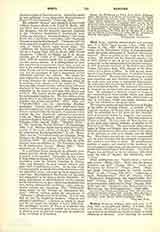

Kreiten, WILLIAM, literary critic and poet, b. June 21, 1847, at Gangelt near Aschen; d. June 6, 1902, at Kerkrade (Kirchrath) in Dutch Limburg. At the age of sixteen he entered the Jesuit novitiate of Friedrichsburg at Munster. After receiving his classical education at Munster and Amiens, he began his philosophical and theological studies at Maria Laach in 1868, but was compelled to interrupt them the following year on account of ill-health. From 1869 to 1871 he pursued literary studies at Munster. When the Jesuits were expelled from Germany, in 1872, Kreiten was sent to Aix in Provence, where he completed his theological studies and was ordained priest on June 8, 1873. From 1876 to 1878 he was on the editorial staff of “Stimmen aus Maria Laach” at Tervueren near
Brussels. In 1878 ill-health compelled him to retire to Kerkrade, where he spent the remaining twenty-three years of his life in literary pursuits. Though continually suffering, he was one of the chief workers on “Stimmen aus Maria Laach”, to which he contributed numerous essays on literary subjects and most of the reviews of current Catholic literature from 1874 to 1902. His larger works in the field of literary history and criticism are “Voltaire, Ein Beitrag zur Entstehungsgeschichte des Liberalismus” (Freiburg im Br., 1878; 2nd ed., 1884); “Molieres Leben and Werke” (Freiburg im Br., 1887; 2nd ed., 1897); “Lebrecht Dreves. Ein Lebensbild” (Freiburg im Br., 1897); a critical edition of the poems of Annette von Droste-Hulshoff with an exhaustive biography of the great Westphalian poetess (Munster, 1884-6; 2nd ed., 1900-); a series of twenty-one articles in “Stimmen aus Maria Laach” on Blaise Pascal and his works. His poetical works are “Heimatweisen aus der Fremde” (Aachen, 1882), the second edition of which has many additional poems and is entitled “Den Weg entlang” (Paderborn, 1889; 10th ed., 1904); translations of selections from the modern Provencal Christmas hymns of Louis Simon Lambert, entitled “Bethlehem” (Freiburg im Br., 1882; 2nd ed., 1895). Furthermore, Kreiten completed and published a biography of Klemens Brentano which had been begun by the friend of his youth, J. B. Diel, S.J., 2 vols. (Freiburg im Br., 1877); edited the other posthumous works of Diel, 2 vols. (Freiburg im Br., 1882), and Brentano’s “Die Chronik des fahrenden Schtilers” (Munich, 1883; 2nd ed., 1888). His last work was a collection of eight hundred aphorisms entitled “Allerlei Weisheit” (Paderborn, 1901).
MICHAEL OTT

